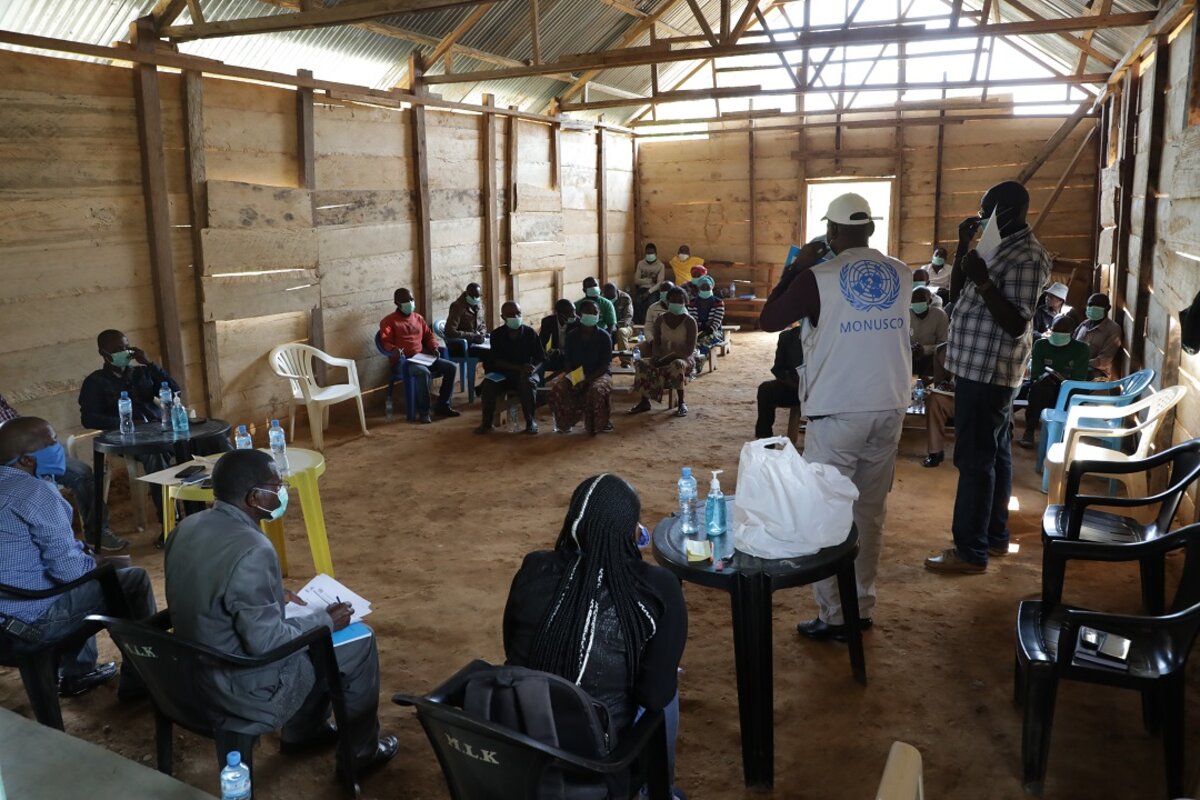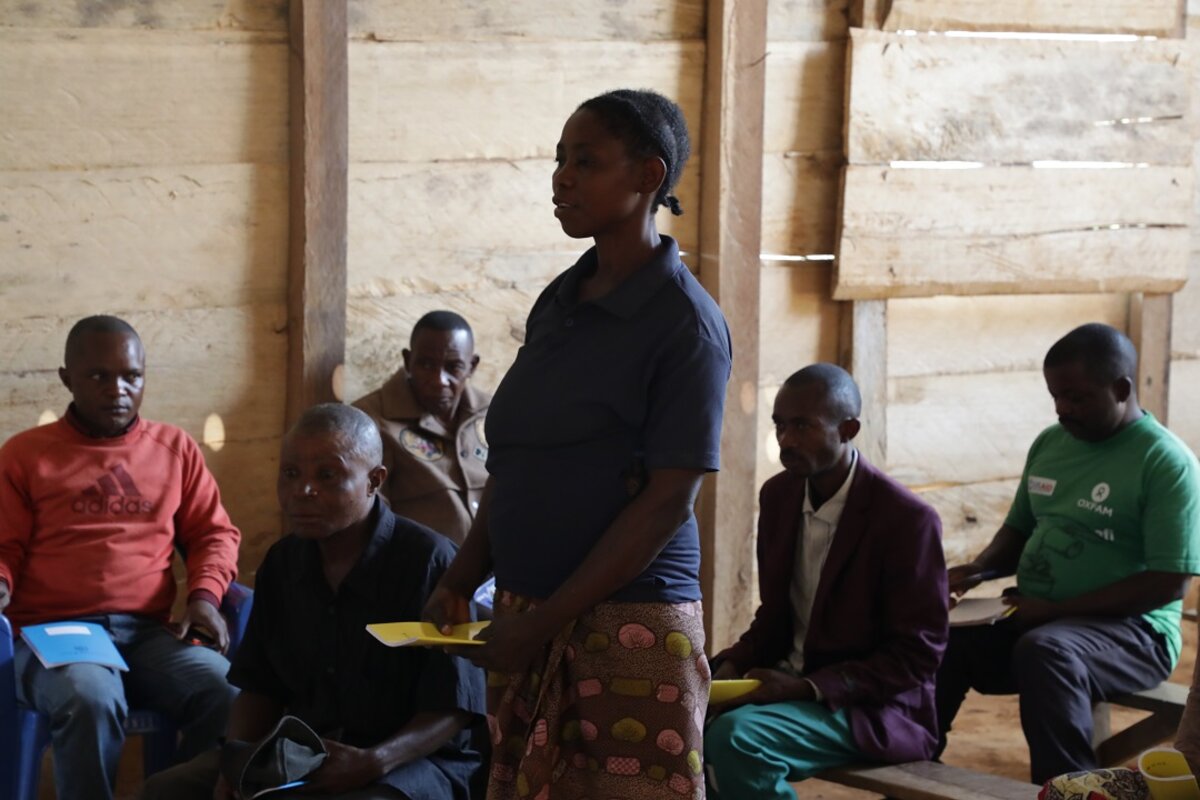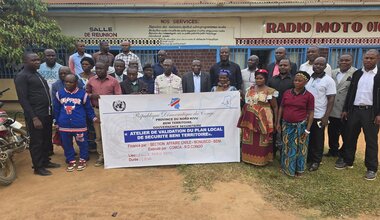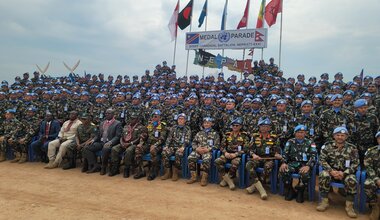Civilians’ Protection: The Civil Society in Mamove Applauds Continuous Efforts by MONUSCO and FARDC
MONUSCO Civil Affairs delegation, led by its Deputy Coordinator, Merault Ahouangansi, visited Mamove, 57 km north of Beni, in North Kivu province, on July 9 where in collaboration with local authorities, a workshop was organized to strengthen the capacities of the key local protection actors.
At least 28 people, including 5 women, participated in this activity; in particular the local authorities, members of the Local Protection Committee (CLP), as well as those from the civil society.

The activity aimed above all to contribute to the strengthening of the community protection tools as well as the early warning and protection mechanisms, with a view to bringing the population to prevent and respond to protection threats.
The delegation seized the opportunity to inform the participants about the new “projection-based protection” strategy implemented by MONUSCO Force and which consists of having less and less fixed bases on the ground, but more temporary bases to deal with the current situations.
They also talked about the possible closure and relocation of the Mamove base in the near future to a less calm area to support FARDC and the ongoing efforts to eradicate the negative groups.
The participants, for their part, unanimously recognized the improvement in the security situation thanks to the presence of MONUSCO and FARDC in the area. This has translated, they said, into a gradual return of the population to the locality, even if there is still the presence of ADF and Mai-Mai groups in the region.

The representatives of the civil society emphasized that, since the deployment of MONUSCO base, a relative calm has been observed in the locality. This is why they thanked "FARDC and MONUSCO for their continuous efforts aimed at improving the protection of civilians in that area".
At the end of the workshop, several recommendations were made. Participants called for the strengthening of the communication networks signal in the area. This will help, they say, to improve the warning system, which is often damaged due to the poor quality of the network.
The women participants, for their part, called for the extension of the patrols to the farming sites to allow them to attend to their business safely and avoid the sexual violence of which they are often victims. They also pleaded for the establishment of a health center for their families to receive medical care. The delegation promised to escalade all these grievances to the leadership for appropriate answers if necessary.
 UN
UN United Nations Peacekeeping
United Nations Peacekeeping






